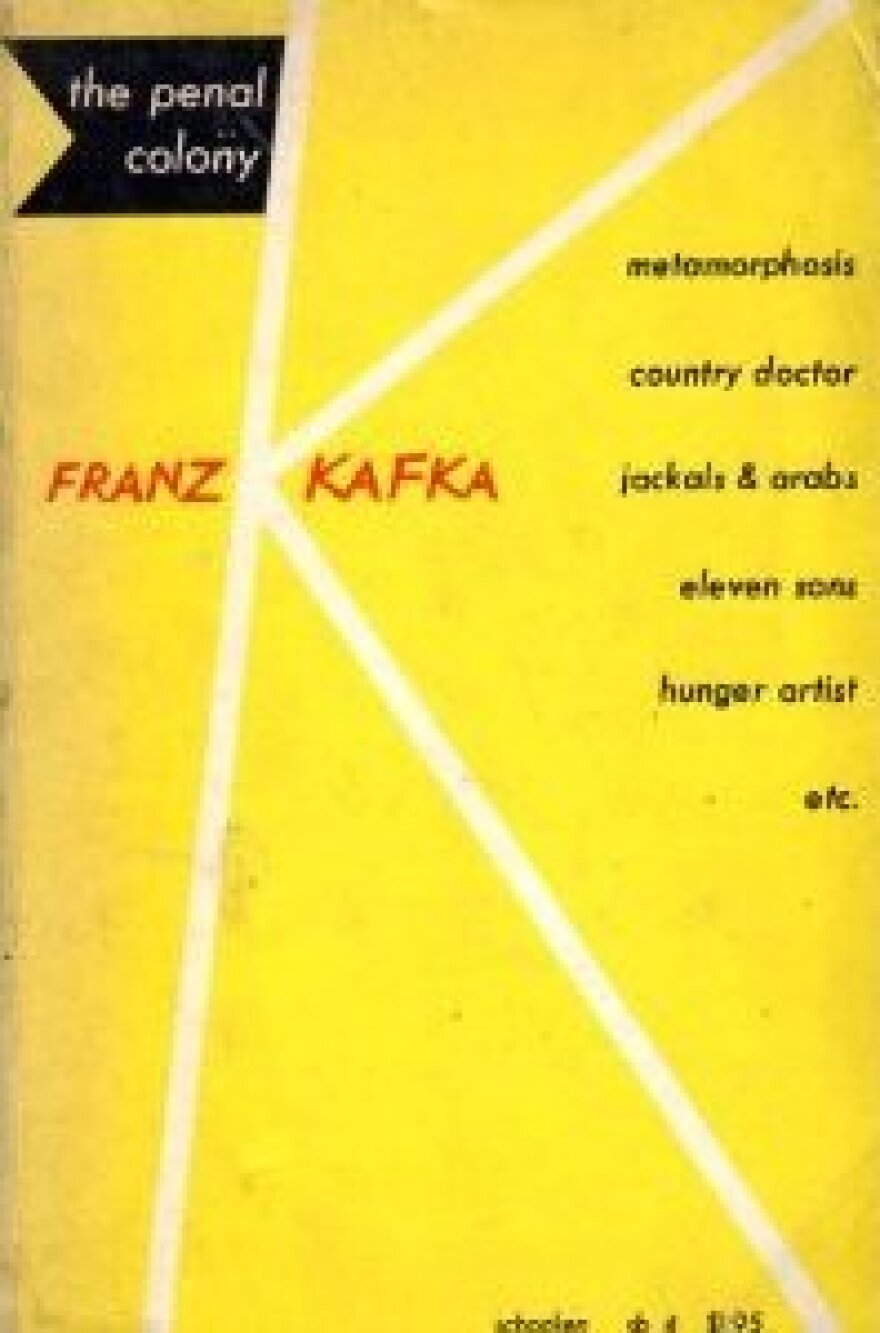T.C. Boyle's newest book is called San Miguel. It comes out this month.
When I was a teenager my reading was largely confined to liner notes (The Rolling Stones: England's Newest Hit Makers!), but at some point — later, rather than sooner — I stumbled across a book or two and got hooked. A whole panoply of things came rushing at me — Hemingway's stories, J.D. Salinger, Cannery Row, On the Road, Tolkien, Vonnegut — but it was Franz Kafka who really set my wheels spinning.
I remember a trade paperback that became a sort of talisman for me — yellow cover, the author's name emblazoned in red, and the mysterious title, with its hint of sadomasochistic titillation, peeking out from a black pennant in the upper left-hand corner: The Penal Colony. Here were stories like no others, stories so far out there they seemed to speak directly to my teen impulse to shatter every window and crash through every wall.
And it wasn't just "The Metamorphosis" that got to me (though who could resist that jaw-dropping first line, "As Gregor Samsa awoke one morning from uneasy dreams he found himself transformed in his bed into a gigantic insect"), but deeper and ever more twisted pieces like "A Hunger Artist," in which the protagonist, a professional faster, starves himself for the amusement of the crowd in a sideshow, or "A Report to an Academy," in which the speaker takes the podium to give an account of the life he "formerly led as an ape" or, for that matter, the triumphantly perverse title story.

"In the Penal Colony" tells the story of an unnamed explorer who is asked to witness an execution on a tropical island under military rule. But this isn't the quick dispatch of the gallows or firing squad, but rather an elaborate 12-hour ritual involving an infernal machine that carves the sentence into the victim's body by means of a series of needles that go progressively deeper until he's punctured all the way through.
In this case, the offense is dereliction of duty (the man fell asleep at his guard post) and the sentence to be corporeally inscribed is "Honor Thy Superiors!" There has been no trial and the condemned man is ignorant of the sentence, because, as the officer in charge explains, "There would be no point in telling him. He'll learn it on his body."
Let's just pause here a moment and think about that. And the fact that during the previous regime, when measures were more stringent, the needles employed acid to magnify the pain.

All right. I was a teenager. I was disdainful of authority, I embraced rock 'n' roll, I wanted to go toe-to-toe with the world, and maybe I didn't get the allegorical significance here, nor the biblical references to the arcane text left behind by the founding Commandant and the mindless adherence to tradition for tradition's sake... but I lapped up the pitch-black humor, the sheer outrageousness of the concept, of the officer's sang-froid and the needle-studded Harrow tirelessly repeating its message.
Kafka horrified me — deliciously — and he liberated me too. He showed me how words on a page could be as revolutionary as any guitar riff and opened up my imagination to a whole new range of subversive possibilities. Which was exactly what I needed to take on out into the adult world with me.
PG-13 is produced and edited by Ellen Silva and Rose Friedman.
Copyright 2023 NPR. To see more, visit https://www.npr.org.


